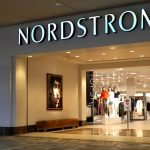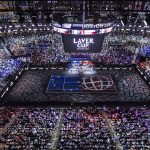Phrased rather simplistically, U.S. consolidated same-store sales for May were hit-or-miss, by definition, as a number of factors claimed significant impact on American shoppers.
According to the International Council of Shopping Centers, consolidated comps for fiscal May improved 5.4 percent – a respectable increase – but much of the surge came as a result of inflated fuel and food costs.
Consequentially, many mid-tier department stores and discounters with lower-income consumers were negatively impacted by the results of higher fuel as well as untimely inclement weather. On the other side of the coin, upscale merchants – Neiman-Marcus, Nordstrom, Saks – remained unfazed by most market challenges, as higher-income consumers are typically less reactive to fuel and food costs. Likewise, Warehouse Clubs benefitted from discounted fuel – which translates to higher traffic and more memberships – along with many shoppers desire to stock up on necessities during one or two trips in efforts to prevent repeat trips that burn gas.
Excluding fuel sales, May comps were up a more moderate 3.7 percent, meaning high fuel prices inflated comps by 1.7 percentage points – more than the 1.1 percentage point contribution for fiscal April. Cooler weather in the Northeast also took a toll on overall comps, dampening warm-weather clothing sales for many retailers dependent on apparel sales. Apparel chains tracked by the ICSC improved a mere 1% versus relatively easy year-ago comparisons. Likewise, the ICSC reported that on a seasonally-adjusted month-over-month basis (which is not typically looked at by analysts), retail sales posted the first decline since October of 2010. The ICSC said this suggests some sequential weakness developed in May.
As noted, Warehouse Clubs came out of the month as winners, with Costco (+13.0 percent) and BJs Wholesale (+7.4 percent) combining for consolidated comp growth of 10.2 percent versus the year-ago period. At Costco, management said comps were up just 7 percent excluding fuel sales and exchange rates while BJs comps improved 3 percent excluding fuel.
Luxury retailers tracked by ICSC and SEW were up a hefty 13.2 percent on average, on double-digit comp growth from Neiman-Marcus (+12.0 percent) and Saks (+20.2 percent) and high-singles growth from Nordstrom (+7.4 percent.). Saks, which exceeded forecasts by nearly 14 percentage points, benefitted from the calendar shift of its Friends & Family Spring sale while Nordstrom easily exceeded expected comp growth of 5.9 percent.
As noted, results werent as rosy among mid-tier department stores, where JC Penny (-1.0 percent), Kohls (+0.8 percent), Dillards (+2.0 percent), Stage Stores (flat) and Bon-Ton (-2.3%) all missed Wall-Streets forecasts due to the aforementioned weather and fuel factors.
At high-end discounter Target (+2.8%), company Chairman, President and CEO Gregg Steinhafel said in a statement that customer traffic slowed during the back-half of the month while higher gas prices and other inflationary pressures crimped customer spending. Last month, the chain confirmed that gas and food prices have made shoppers cautious thus far in the quarter.
At The TJX. Cos. (+2.0 percent) CEO Carol Meyrowitz said comps were in-line with projections, adding that comps at The Marmaxx Group (Marshalls, T.J. Maxx) were up 4 percent despite the aforementioned inclement weather in the Northeast. Sales trends picked up as the weather turned warm exiting the month, which bodes well for the important month of June, Meyrowitz added.
Looking ahead, the ICSC forecasts June industry sales to increase between 3 percent and 4 percent excluding the impact of fuel and between 4 percent and 5 percent with fuel.














